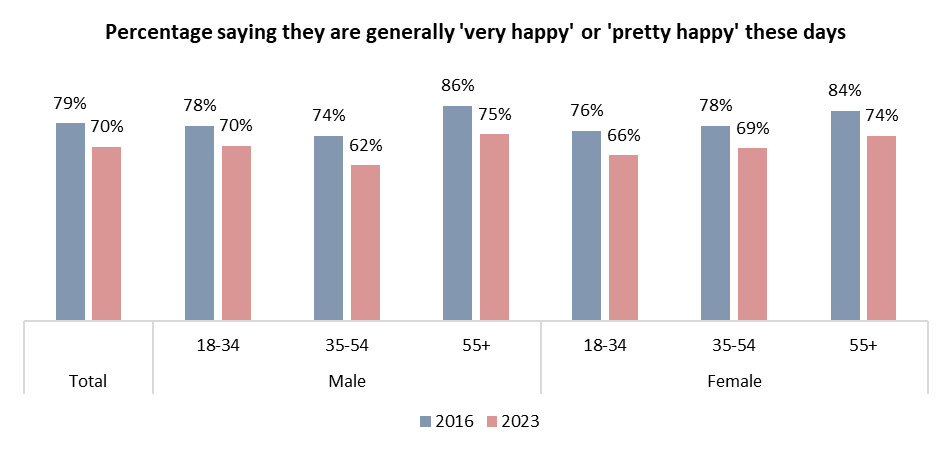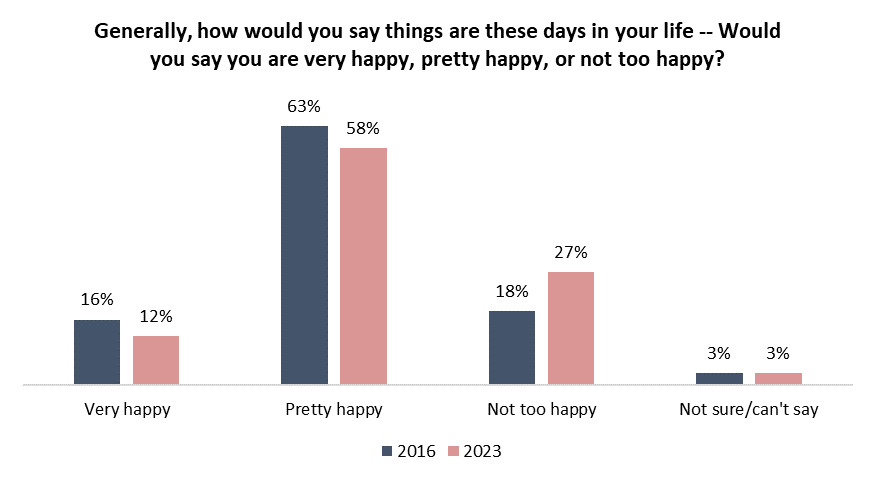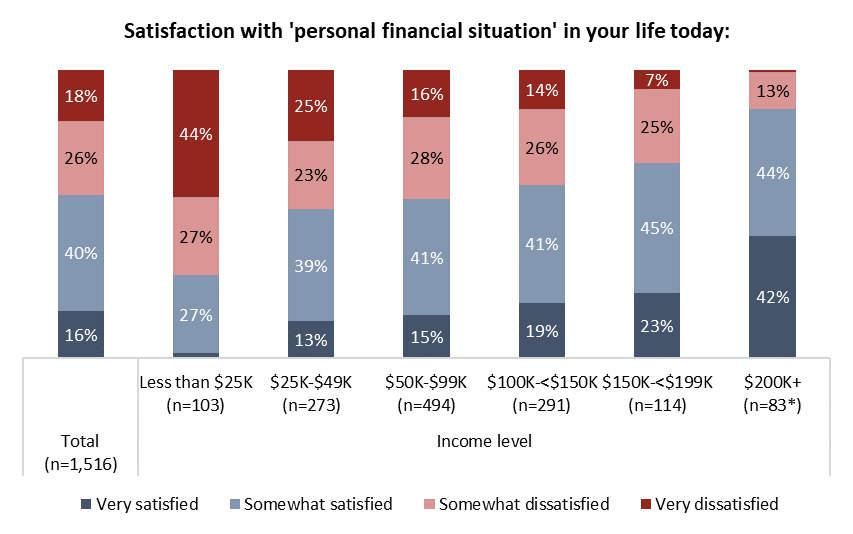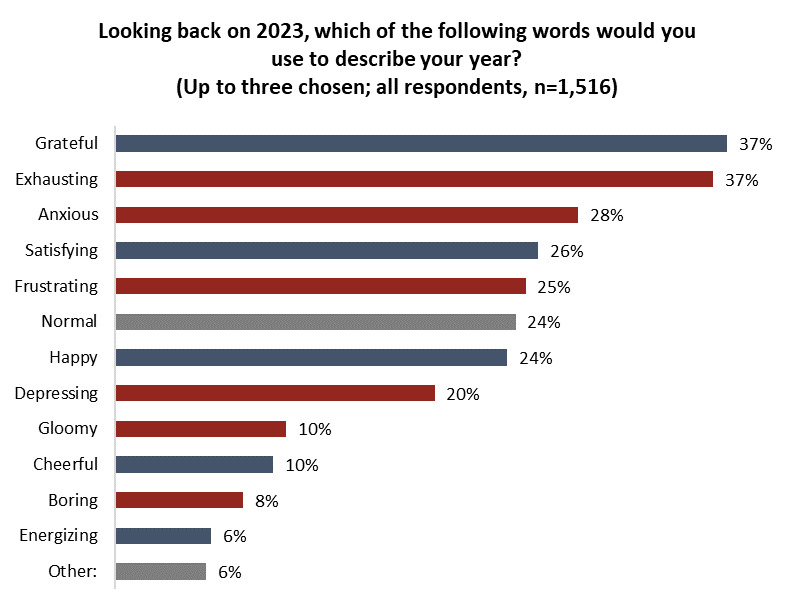Regarding health, happiness and financial situation, two in five Canadians feel 2023 was more good than bad for them, while one-third call it average, and one-quarter found the year 2023 more negative than positive. However, most Canadians feel they are in a dark place financially as per the review done by Angus Reid Institute (ARI). The Angus Reid Institute conducted an online survey from December 15 to 19, 2023, with a representative and randomized sample of 1,516 Canadian adults who are members of the Angus Reid Forum.
According to survey results, most families with household incomes lower than $50,000 have felt disappointed throughout 2023 and are hoping that 2024 will bring more prosperity. As the younger population is unhappy, Canadians over the age of 54 are mostly satisfied with their lives. The survey shows the change in the happiness index between 2016 and December 2023.

When it comes to mental health, one in three Canadians (32%) say they are dissatisfied with how they feel currently. Nearly half (45%) of young women feel their mental health could be better.
There are notable trends between the responses received in 2023 in comparison to the responses from 2016 when the Angus Reid Institute last conducted this survey. The first is that happiness levels have dropped slightly among the population. Seven years ago, before COVID-19 had spread around the globe and when the economic climate was more stable, four in five (79%) said they were either “very” or “pretty” happy. In 2023 that proportion has dropped to 70 per cent, with a nine-point increase in those saying they’re “not too happy” with their life.

Inflation continued to be a worrying factor for Canadians in 2023 and with the declining purchasing power and declined capacity to pay for necessities such as rent, mortgages and groceries, the percentage of Canadians saying they were happy dropped considerably in 2023. Seven in ten Canadians describe themselves as very happy (12%) or pretty happy (58%). More than one-quarter (27%) are less pleased, saying they are “not too happy”.

The percentage of very dissatisfied people is higher among those who earn less than $25,000 annually, while the proportion of those in the top two categories of the index increases with income level.
Canadians who have children are less likely to feel satisfied with certain aspects of their lives compared to those who do not have kids. Specifically, they are less satisfied with their physical health (53% satisfaction rate compared to 62% for those without kids), leisure time (57% compared to 73%), and finances (46% compared to 61%).
How Canadians describe their year

There are generational and gender variations too, with Canadians belonging to 18 to 54 years of age being more likely than their older peers to say this year was exhausting. The 35- to 54-year-old group, men and women alike, are more likely to say the year was frustrating, while women of all ages are more likely to voice anxiousness this year compared to their male peers.
The information above is from an online survey conducted by the Angus Reid Institute conducted between December 15 to 19, 2023, with 1,516 Canadian adults who are members of the Angus Reid Forum. The survey was self-commissioned and paid for by ARI. More details about the survey can be found here.
About ARI
The Angus Reid Institute (ARI) was founded in October 2014 by pollster and sociologist, Dr. Angus Reid. ARI is a national, not-for-profit, non-partisan public opinion research foundation established to advance education by commissioning, conducting and disseminating to the public accessible and impartial statistical data, research and policy analysis on economics, political science, philanthropy, public administration, domestic and international affairs and other socio-economic issues of importance to Canada and its world.

